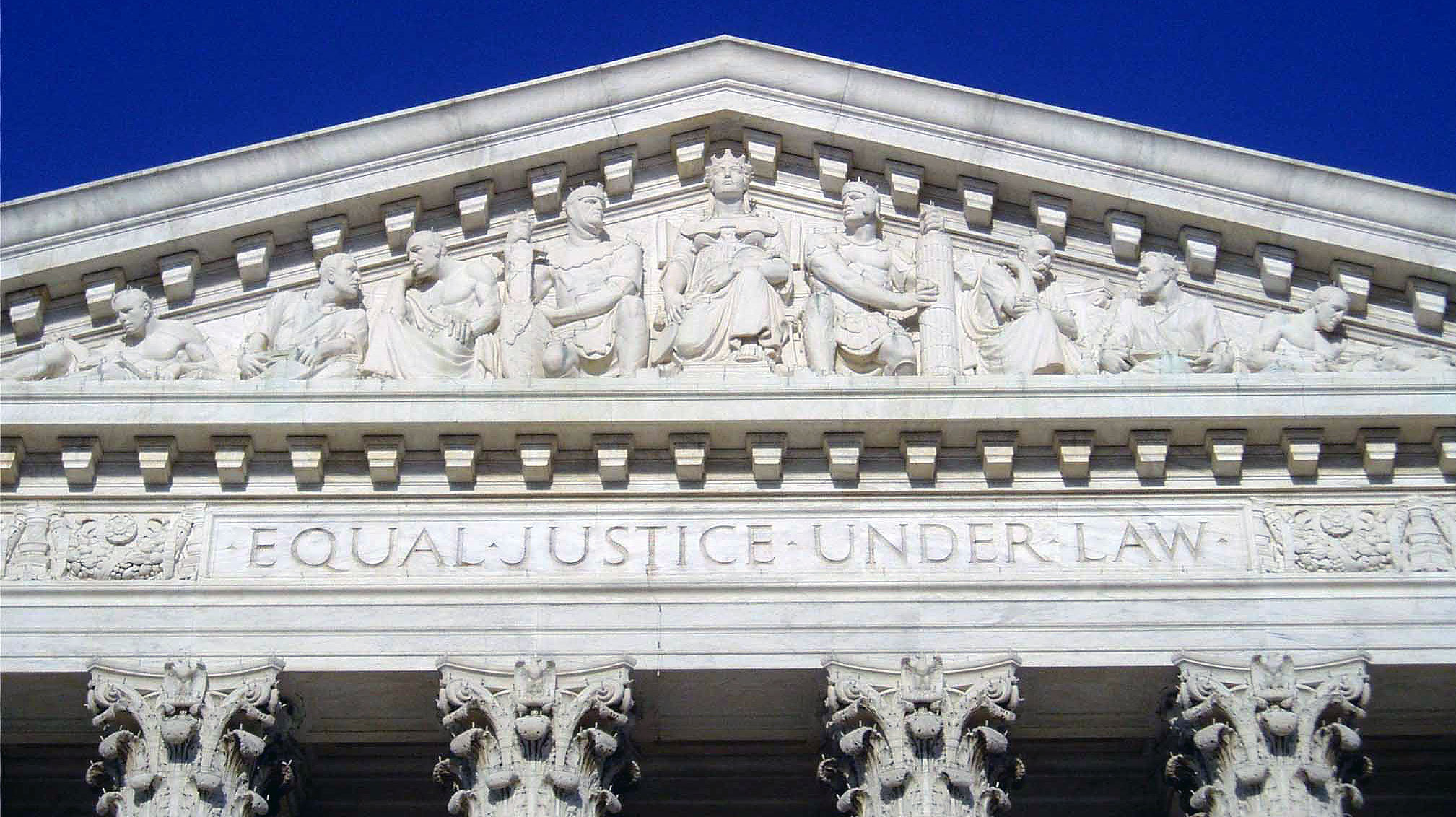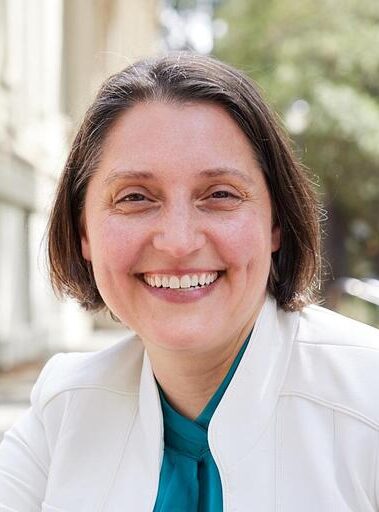UC Berkeley experts react to U.S. Supreme Court ruling on medical care for trans minors
Scholars across a range of fields assessed a case of enormous significance that could affect not only transgender youth, but possibly also reproductive policy on abortion, contraception and in vitro fertilization.

MattWade via Wikimedia Commons
June 18, 2025
A divided U.S. Supreme Court today (Wednesday, June 18) delivered a major setback for the rights of transgender people, upholding a Tennessee law that bans doctors and families from providing gender-affirming medicines for trans youth.
The vote, with the court’s six conservative justices in the majority, is likely to have far-reaching consequences, according to UC Berkeley scholars. Trans rights and protections are a focus of intense political conflict and polarization across the nation. Laws similar to Tennessee’s are already in place in 26 other states, and the new court ruling will allow them to stand.
According to one study, there are about 1.3 million transgender adults in the U.S., and about 300,000 trans youth between ages 13 and 17.
Berkeley scholars across a range of fields, from law and health to gender studies and politics, provided immediate response to the ruling in U.S. v. Skrmetti, assessing its impact on trans people and its wider implications.
What are the immediate legal implications of the decision upholding Tennessee’s law? What are the long-term legal and social implications?

The court’s claim that the state law regulates medical treatment, but not on the basis of sex or transgender identity, flies in the face of common sense. This opinion ranks with Dobbs v. Jackson Women’s Health Organization and Students for Fair Admissions v. Harvard in that it abandons long-settled legal precedent while providing a flimsy justification.
Unfortunately, the opinion establishes that courts now have discretion whether or not to analyze under heightened scrutiny a law that treats men and women differently. This creates an opening for justices to rely on policy arguments instead of legal principles.
Today’s opinion suggests that transgender people will receive only “rational basis” review in most cases — the minimum standard that the court applies to assure that laws are not arbitrary or unreasonable. It almost always leads the court to uphold the challenged law, which means it’s effectively no protection from a hostile political process.
— Russell K. Robinson, professor of law and faculty director of the Center on Race, Sexuality and Culture
Your most recent book, Who’s Afraid of Gender?, discusses how “gender ideology” is used as a bogeyman to advance authoritarian policies. What are the broader implications you see in this decision?

In upholding Tennessee’s law banning gender-affirming care for youth, the Supreme Court sets aside the findings of every major medical association that to deny such care constitutes a harm to the health of young people. The court surmises that harm may be inflicted by such care, but instead of backing up that point with reliable studies, they pose it as a hypothetical that can only imagine or conjecture possible harm coming from such care.
This decision rests on a confusion about what is “care” and what is “harm.” Indeed, the harm that the decision does by denying care to trans and gender nonconforming youth goes unremarked except in the searing dissent authored by Justice Sotomayor: “The court abandons transgender children and their families to political whims.” After all, she points out, boys can take the same medications to become more masculine, and girls can receive the same treatments to appear more feminine. It appears that only when the treatment allows for transition from one sex to another that it becomes problematic. But if trans people are deprived of a form of care to which non-trans people have access, how is that not a problem of unequal treatment?
Since no harm is done by hormonal therapy per se, we can only conclude that the court understands departures from sex assignment and its social expectations to be the problem. The court itself does harm to the 112,400 transgender youth in Tennessee according to the Williams Institute at UCLA, but it also poses a threat to much-needed care for the estimated 1.6 million transgender youth in the United States.
The court ruled that equal protection was not violated by the Tennessee law, but luckily the decision has no effect on transgender as a protected category under sex discrimination statutes, as established by the Supreme Court’s own decision in Bostock v. Clayton. Nor does it override parental rights to decide the best health care for their children, though it sets up a new possible legal challenge. Since the Tennessee law can still be challenged on other grounds, this is not the end of the story.
But the failure of the court to trust the scientific findings of major medical associations adds to the impression that state institutions decide matters of gender, sex and sexuality on political grounds rather than reflective and thorough review. The fact that Trump’s executive order cites the “immutability” of sex, borrowing the language of the Vatican, over the research of developmental biology is but another case in point where an anti-science attitude prevails. That they fail to see the problem of inequality that Sotomayor clearly underscores is perhaps the most worrisome dimension of this decision.
— Judith Butler, Distinguished Professor in the Graduate School in the Department of Comparative Literature and the Program of Critical Theory
As someone who researches the lives and experiences of older LGBTQ people, how do you think this case affects more than the lives and health care options for trans youth?

The Skrmetti case is not just a blow for gender-affirming care for youth; it also presents a major setback for transgender older adults — and a dangerous preview of what can happen when gender-affirming care is denied.
In a recent qualitative study of over 200 LGBTQIA+ older Californians, transgender older adults underscored the importance of access to gender-affirming care. Many had lived much of their lives in a body and gender that was incongruent to who they are, which caused significant mental and physical health issues that accumulated over time. They regularly experienced discrimination, harassment and violence. Some described frequent thoughts of suicide.
A survey by the National Center for Transgender Equality found that 40% of trans people had attempted suicide in their lifetime (nearly nine times more than the general population at 4.6%). In a 2024 survey of LGBTQIA+ older Californians, more than 18% of transgender and gender expansive older women reported serious thoughts of suicide in the past year, compared to 10% of cisgender LGBQIA+ older adults.
Having access to gender-affirming care earlier matters. It shapes opportunities for transgender youth and adults to grow into individuals who are comfortable in their own skin — in their own bodies. It minimizes discrimination, harassment and violence. Ultimately, it keeps many trans people alive.
— Angela Perone, assistant professor in the School of Social Welfare
What is your sense of the overarching political importance of this decision? How will it resonate in the political culture?

Over the past two decades, red states and blue states have passed increasingly distinct policies, especially on social issues like abortion and LGBT rights. This situation has been aided by the Supreme Court becoming more permissive of large policy differences between states.
For example, the Dodd ruling allowed states not only to restrict abortion access, but fully ban the practice — increasing the abortion policy gap between conservative and liberal states.
The ruling in Skrmetti does something similar by saying the federal government won’t stand in the way of states banning transgender health procedures for people under 18. We can expect conservative states and liberal states to become increasingly different on transgender health policy.
— Jake Grumbach, director of the Democracy Policy Lab and associate professor at the Goldman School of Public Policy
How does this ruling fit into the larger trajectory of trans rights?

The night before the U.S. v. Skrmetti decision, I visited Antonio Gramsci‘s grave. A Sardinian Marxist and anti-fascist who was imprisoned by Mussolini, Gramsci crystalized the concept of cultural hegemony: the techniques used by the ruling class so its ideology can appear natural and outside of its historical context.
Among the questions today’s ruling asks us is: How did we move with such a quickness from a generalized common sense of trans inclusion, at least in name, to our current moment? Or asked another way: Why is transness so seductively destabilizing that its very existence invites attack?
To be clear, this ruling and the forms of harm it will intensify are not enacted to protect actual children, trans or otherwise. The court’s majority opinion stands as a warning sign to those that live beyond the fantasy of the gender binary. Here, under the boot of hegemonic power, children are sacrificed as the lifesaving medical care they need is withheld. Further, as research has shown, the court’s decision will embolden anti-trans aggression from bathrooms to clinics and beyond.
In the echo of such brutality, what can be said to young trans people who feel the weight of the gavel pounding them into dust? I’m not sure. Yet what does remain is our commitment to keeping each other alive and the truth that trans people of all ages, against the supremacy of the court, will always exist.
— Eric Stanley, Haas Distinguished Chair in LGBT Equity and associate professor of gender and women’s studies
Given your work with trans people, what impact do you think the court’s decision will have on them? While it appears California will not be affected directly by the decision, do you think it will resonate in the lives of people here?

Bethanie Hines
The impact of today’s ruling sends a heartbreaking message that transgender and gender non-conforming folks should not be afforded the same access to health care as cisgender folks.
As a trans person who was able to access gender-affirming medical care, I stand committed to ensuring we see as many kids given the opportunity to thrive and live full lives with dignity and autonomy over their own bodies.
We must continue to fight for all families being able to get the health care they need, and for transgender people’s rights to control their own future. This decision will not stop us from existing and creating the mutual support that keeps us safe until this country gets it right.
— Milo Manopoulos Beitman, Berkeley Law lecturer and program director of the health and welfare unit at the East Bay Community Law Center